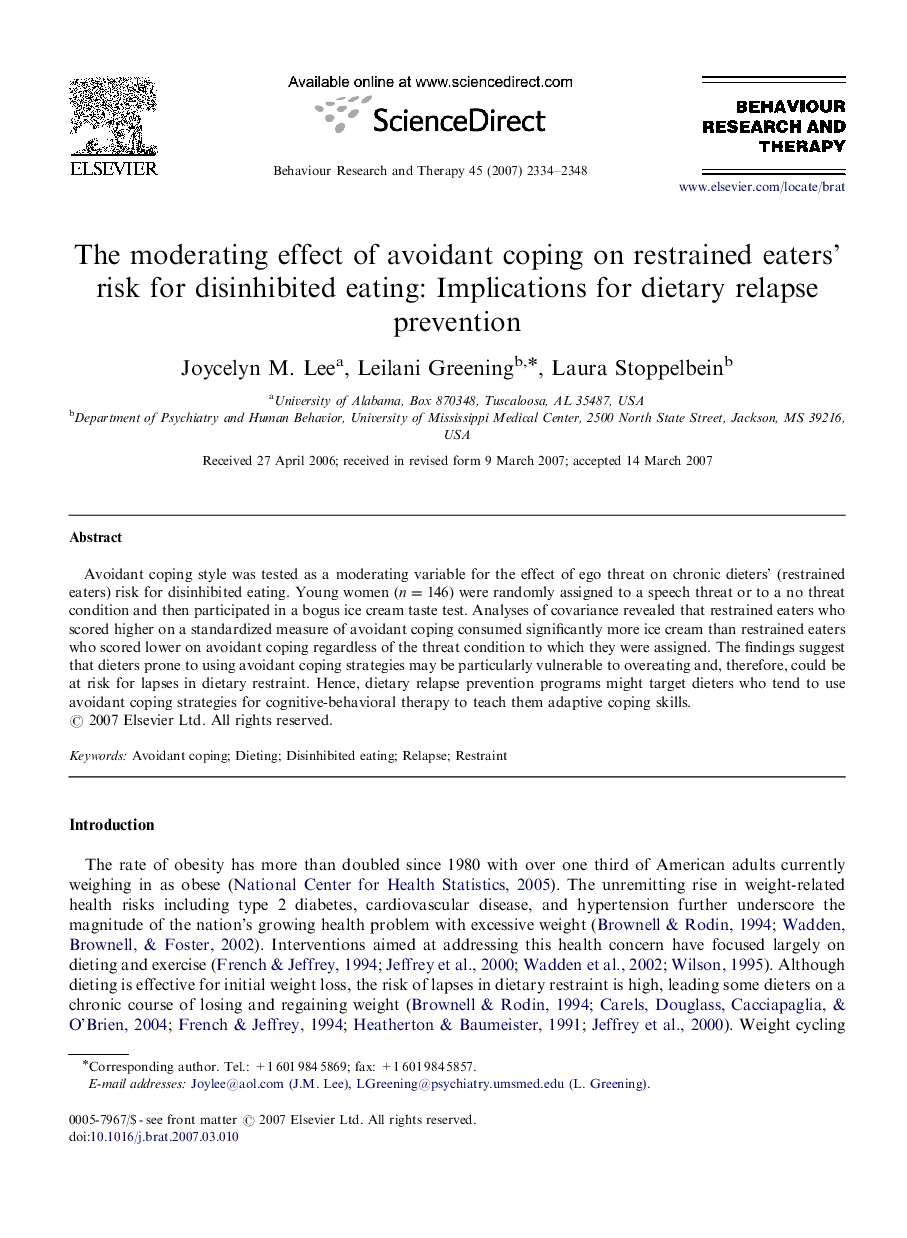| Article ID | Journal | Published Year | Pages | File Type |
|---|---|---|---|---|
| 902296 | Behaviour Research and Therapy | 2007 | 15 Pages |
Avoidant coping style was tested as a moderating variable for the effect of ego threat on chronic dieters’ (restrained eaters) risk for disinhibited eating. Young women (n=146) were randomly assigned to a speech threat or to a no threat condition and then participated in a bogus ice cream taste test. Analyses of covariance revealed that restrained eaters who scored higher on a standardized measure of avoidant coping consumed significantly more ice cream than restrained eaters who scored lower on avoidant coping regardless of the threat condition to which they were assigned. The findings suggest that dieters prone to using avoidant coping strategies may be particularly vulnerable to overeating and, therefore, could be at risk for lapses in dietary restraint. Hence, dietary relapse prevention programs might target dieters who tend to use avoidant coping strategies for cognitive-behavioral therapy to teach them adaptive coping skills.
